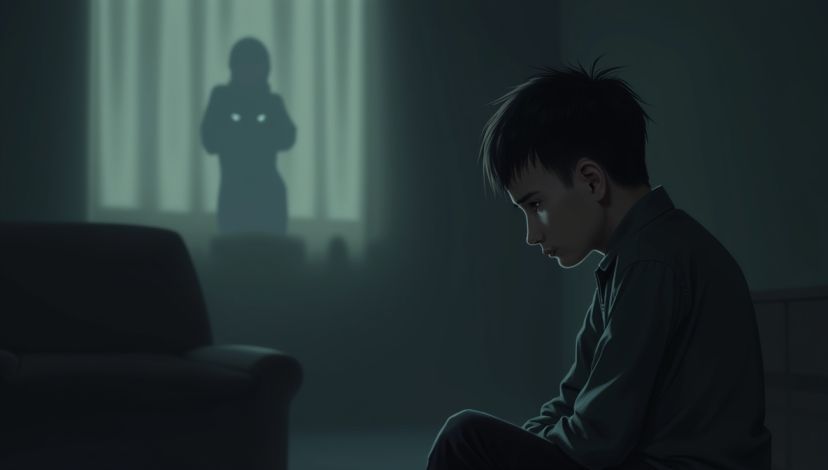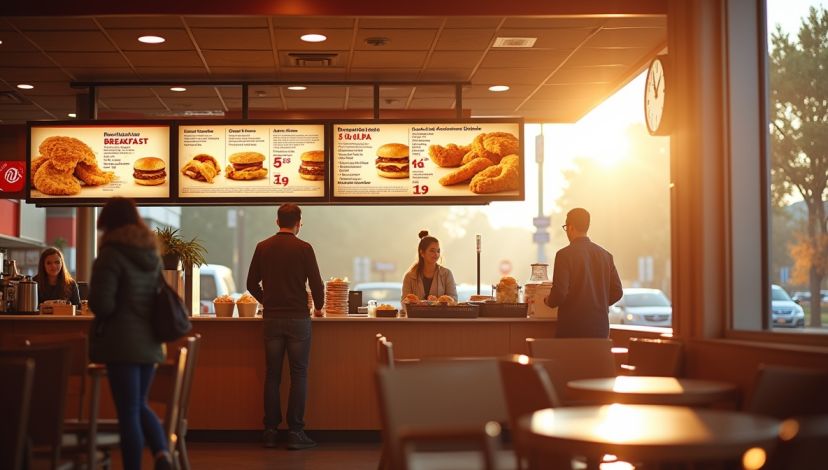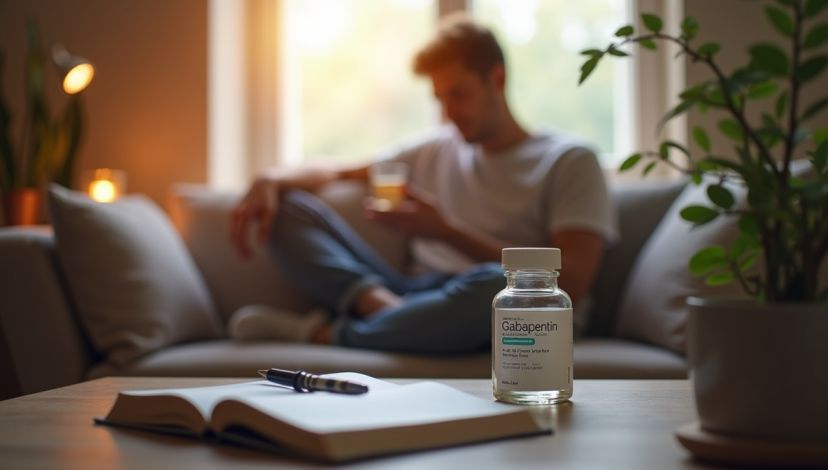Have you ever been sitting alone, only to suddenly feel like somebody’s watching me, it’s my anxiety playing tricks on your mind? There is a creepy feeling of being under the watch of unseen eyes, and this feeling can be quite disturbing, even though there is no one at all. This experience is not as unusual as you may imagine and quite often is connected with disorders and anxiety, when the defense systems of the brain are over-sensitive. Knowledge on why this occurs is very important, as they can lead you to a better life in controlling your mental health issues and gaining normalcy once again.
Here is the list of reasons why we feel that way, and why our perception is affected by anxiety, and how we can help ourselves deal with the feeling, in this article. Regardless of whether it happens only in some cases or is a common battle, there is support and hope. It is not only “in your head”; it is a message sent by your nervous system in response to threats, which are sometimes not even there.
Key Takeaways:
- Such emotion is usually as a result of hypervigilance due to nervous conditions and tension.
- Knowledge of the relationship between anxiety and perception can enable you to control the symptoms successfully.
- This unpleasant feeling can be minimized with professional assistance and self-care efforts to a huge degree.
Third Clue: What does it mean, I feel someone is looking at me, it is my anxiety?
The feeling that someone is looking at you, even when there is no one with you falls closely with the ability of our brain to live. The tendency to be aware of the gaze of others normally enables the humans to escape danger, but in cases of anxiety, hypervigilance, and an alertness state is overactive. You might experience restlessness and will constantly scan surrounding yourself without any actual danger.
Leslie Dobson explains that fearful media, trauma, or neurological imbalances in brain areas like the amygdala can cause it. For example, a person who experiences trauma can become hypersensitive to threats, like falsely feeling monitored.
Real-Life Example:
Someone who has survived a break-in may feel this quite a lot when he or she is alone at home because the brain is still trapped in a mode of high-level alert. Although technically a protective reaction, when repeated, the reaction may impede everyday life.
Why Do People Say “Somebody’s Watching Me It’s My Anxiety” When Referring to Anxiety Disorders?
Disorders such as Generalized Anxiety Disorder (GAD), PTSD, and Social Anxiety Disorder tend to increase the awareness about the environment to an unbearable level. According to a research conducted by Frontiers in Psychology, the process underlines how the anxiety induced by trauma is related to parts in the human brain that analyze fear and vigilance, leading to the distortion of neutral stimuli to threaten.
Important: The feeling is not an indication of a serious psychiatric disorder, although it should be addressed with the help of an expert in case it turns persistent and obstructive.
The Fear of Being Watched and the Social Anxiety: The Way They Relate
Central to social anxiety disorder is the fear of being judged or looked at, and this is the reason many people will experience the feeling that someone is staring at them. This fear may induce avoidant behaviors in day-to-day social interactions, which may include job interviews, participating in classrooms, and parties, among others, that would have detrimental effects on personal and professional life.
|
Social Scenario |
Common Fear | Real-Life Impact |
| Job Interview | Fear of visible nervousness |
Underperformance, increased stress |
|
Classroom |
Fear of peer judgment during speaking | Avoidance of participation |
| Social Events | Fear of embarrassment or blunders |
Social isolation, missed opportunities |
Table 1: Social conditions often experienced by an individual who fears being watched augment anxiousness
Alt text: Table featuring situations related to social awkwardness, being afraid to look under scrutiny, and its effects
In such cases, one with social anxiety might not attend networking events because of an extreme fear that everything they are doing is under scrutiny. It is important to notice that it is a symptom, not some character trait.
What Is the Difference Between Normal Caution and Anxiety-Induced Paranoia When You Feel “Somebody’s Watching Me: It’s My Anxiety”?
Although we should always feel aware of our environments, it is normal to experience this, and even sometimes it is desired, but when the fear becomes compulsive and unmerited, it is time to become anxious or paranoid.
|
Feature |
Normal Vigilance | Anxiety-Driven Vigilance |
| Trigger | Actual potential threat |
Perceived threat without evidence |
|
Duration |
Temporary, situation-dependent | Persistent, unrelated to the environment |
| Impact on Life | No significant impairment |
Affects work, relationships, and focus |
|
Reality Check |
Quickly reassured by evidence | Difficulty dismissing fears |
Table 2: Optimization of the being watched, Types of caution, and anxiety
ALT text: Table of differences between normal and anxiety-driven moments of vigilance features
According to clinical psychiatrist Alice Feller, such feelings are hard to suppress, and it is under such situations that reality-testing becomes nearly impossible, thus demanding professional assessment. Prevention of further development of symptoms relies on early intervention.
What Are Effective Coping Strategies and Expert Tips to Manage the Feeling “Somebody’s Watching Me: It’s My Anxiety”?
Managing this feeling implies knowledge and manipulation of anxiety, showing the points and symptoms. The following are some of the suggested strategies backed by professional wisdom:
- Mindfulness and grounding skills practice: These can break the cycle of racing thoughts and hypervigilance because it works to shift attention to focusing on the present moment, wary of imaging threats. Recently, people reduce panic by using the 5-4-3-2-1 method to focus on physical sensations around them.
- Cognitive Behavioral Therapy (CBT): Replacing the distorted thoughts, such as somebody is watching me, with reality is also made easily in CBT because it tests the reality and questions nonsense fears. It is helpful to people to alleviate anxiety symptoms in the long term.
- Healthy Lifestyle Habits: Exercises, a good diet, and enough sleep contribute to a healthy brain, which lowers anxiety levels.
- Professional Assistance: The experts in the field of anxiety disorders suggest that one should seek professional help in case the sensation negatively affects the functioning or relations. Treatment methods can be selected as per the level of severity.
Real-life Case:
Through CBT procedures involving an educational component, essentially to identify irrational thoughts and challenge them, a client with lasting paranoia was assisted. In a few weeks, their hypervigilance will be reduced, and they will be able to resume normal tasks.
Warning: Self-help works best when combined with professional care if symptoms persist or worsen over time.
To know more about how to control causes of anxiety, read our article on What Are the Top 10 Medications for Anxiety? Find Out Now.
What Are the Future Perspectives in Anxiety Enlightenment and Management for Those Who Feel “Somebody’s Watching Me: It’s My Anxiety”?
Neuroscientists now use neuroimaging more often to explore the detailed neurobiology behind anxiety. Digital mental health tools and AIAIT therapy bots are unveiling new treatments that are more convenient to attend.
|
Treatment Approach |
Description | Accessibility | Effectiveness |
| Cognitive Behavioral Therapy | Psychological approach | Widely available |
High |
|
Medication (SSRIs, Benzos) |
Chemical regulation of symptoms | Requires prescription | Moderate to high |
| Digital Therapy Apps | App-based guided therapy | Increasingly scalable |
Emerging evidence |
|
AI Chatbots for Therapy |
AI-supported emotional support | Available online |
Effective as adjunct therapy |
Table 3: Contemporary opportunities for the treatment of anxiety and its characteristics
ALT text: Table containing a description of various types of treatments in relation to anxiety, with a comparison of accessibility and success
New studies urge tailoring anxiety treatments by subtype to better prevent symptoms like feeling constantly watched.
Conclusion
The unsettling experience of somebody’s watching me, it’s my anxiety, is more than just a fleeting thought—it reflects how anxiety can distort our perception and amplify our fears. Understanding that your emotions link to hypervigilance and anxiety helps you respond calmly with effective actions, not fear.
We often feel insecure or anxious in public, triggering stress from social anxiety or paranoid thoughts. Recognizing these signs early helps you take control. Seeking help from a mental health professional makes a huge difference in how you cope. You’re not alone—many people recover with proper support and care. With the right help, you can rebuild calm and trust in daily life. Start using coping tools and speak with a therapist about your feelings. Build a strong support system that quiets the voice saying, “Someone is watching me.” That voice is your anxiety—not reality—and you can overcome it.
FAQs
Q1: I am alone, and yet I feel that someone is watching me. Why is that so?
A: This may be a result of hypervigilance, a state of anxiety that causes your mind to be in panic mode, being constantly alert of dangers that may or may not be there.
Q2: Is the perception that someone is watching you a sign of a mental illness?
A: Anxiety or phobias like scopophobia can cause it, but occasional feelings often occur normally and aren’t pathological.
Q3: How might I minimize my feeling that I am being watched?
A: You can overcome this anxiety-related emotion by practicing mindfulness, using cognitive behavioral therapy, and seeking professional help.
Q4: At what stage shall I find professional help for being watched?
A: In case the sensation is long-lasting, interferes with your life, or is accompanied by other anxiety symptoms, then it is advisable to resort to a mental health expert.
Q5: Is it possible that a change in lifestyle will enhance this perception towards anxiety?
A: Yes, exercise, sleep, and general stress management can decrease all anxiety and decrease the feeling of hypervigilance.




